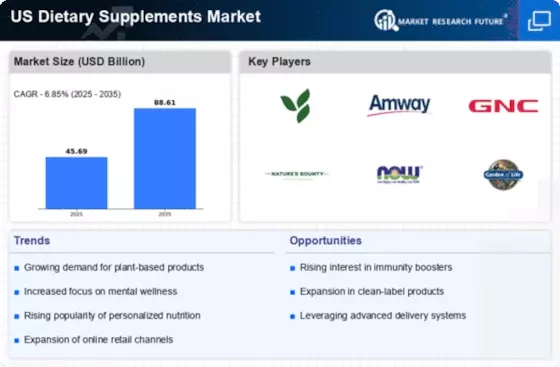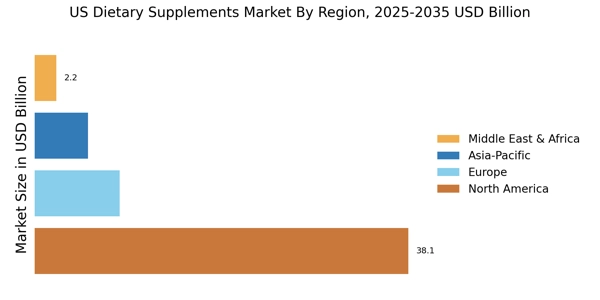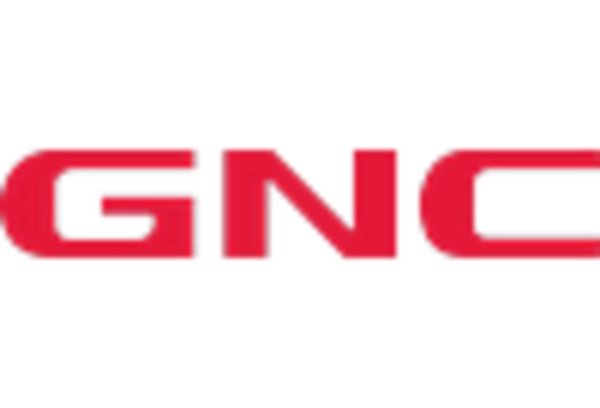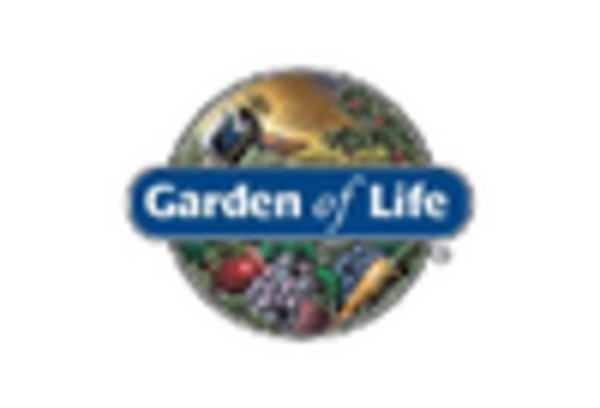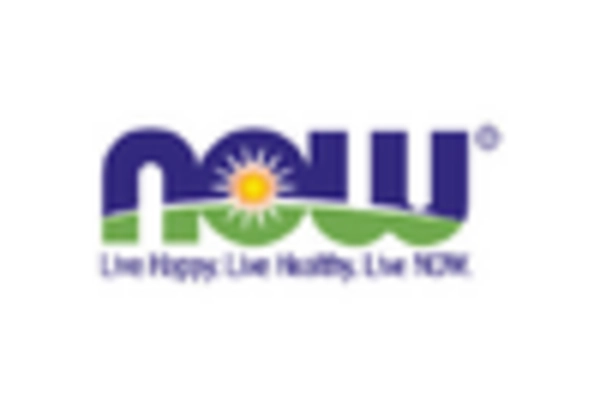Aging Population
The demographic shift towards an aging population in the United States is significantly impacting the US Dietary Supplements Market. As the baby boomer generation continues to age, there is an increasing demand for supplements that address age-related health concerns, such as joint health, cognitive function, and cardiovascular support. Data indicates that individuals aged 50 and older are among the largest consumers of dietary supplements, with a substantial portion investing in products that promote longevity and vitality. This trend is further supported by the growing prevalence of chronic diseases among older adults, which has led to a heightened focus on preventive health strategies. Consequently, the US Dietary Supplements Market is likely to see sustained growth as manufacturers develop targeted products to meet the specific needs of this demographic, thereby capitalizing on the opportunities presented by an aging population.
E-commerce Expansion
The rapid expansion of e-commerce is transforming the US Dietary Supplements Market, providing consumers with unprecedented access to a wide range of products. Online sales of dietary supplements have surged, driven by the convenience of shopping from home and the ability to compare products easily. Recent data indicates that e-commerce sales in the dietary supplement sector have grown significantly, with online platforms accounting for a substantial portion of total sales. This shift towards online purchasing is further supported by the increasing use of mobile devices and social media marketing, which facilitate direct engagement with consumers. As a result, traditional retail channels are being complemented, if not overshadowed, by online sales platforms. The US Dietary Supplements Market is likely to continue evolving as e-commerce becomes an integral part of the consumer shopping experience, enabling brands to reach a wider audience and enhance their market presence.
Rising Health Consciousness
The US Dietary Supplements Market is experiencing a notable surge in demand driven by an increasing awareness of health and wellness among consumers. As individuals become more health-conscious, they are actively seeking dietary supplements to enhance their overall well-being. According to recent surveys, approximately 77% of American adults report taking dietary supplements, reflecting a growing trend towards preventive health measures. This shift is likely influenced by a desire to maintain optimal health, manage stress, and support immune function. Furthermore, the rise of social media and wellness influencers has played a pivotal role in promoting the benefits of dietary supplements, thereby expanding their appeal across various demographics. As a result, the US Dietary Supplements Market is poised for continued growth as consumers prioritize health and seek out products that align with their wellness goals.
Regulatory Support and Standards
The US Dietary Supplements Market benefits from a regulatory framework that supports the safe and effective use of dietary supplements. The Dietary Supplement Health and Education Act (DSHEA) of 1994 established guidelines that ensure product safety and labeling accuracy, fostering consumer trust in dietary supplements. This regulatory environment encourages innovation and the introduction of new products, as manufacturers are motivated to comply with established standards. Additionally, the US Food and Drug Administration (FDA) plays a crucial role in monitoring the market, ensuring that products meet safety and efficacy requirements. As a result, consumers are more likely to engage with dietary supplements, knowing that they are backed by regulatory oversight. This supportive regulatory landscape is expected to contribute to the ongoing growth of the US Dietary Supplements Market, as it enhances consumer confidence and encourages market participation.
Technological Advancements in Product Development
Technological advancements are reshaping the US Dietary Supplements Market by enabling the development of innovative and effective products. Advances in extraction techniques, formulation processes, and delivery systems have led to the creation of supplements that are more bioavailable and tailored to meet specific health needs. For instance, the use of nanotechnology in supplement formulation has shown promise in enhancing nutrient absorption, thereby improving overall efficacy. Furthermore, the rise of personalized nutrition, driven by advancements in genetic testing and data analytics, allows consumers to select supplements that align with their unique health profiles. This trend is likely to attract a broader consumer base, as individuals seek customized solutions to their health challenges. Consequently, the US Dietary Supplements Market is expected to thrive as technology continues to play a pivotal role in product innovation and consumer engagement.


